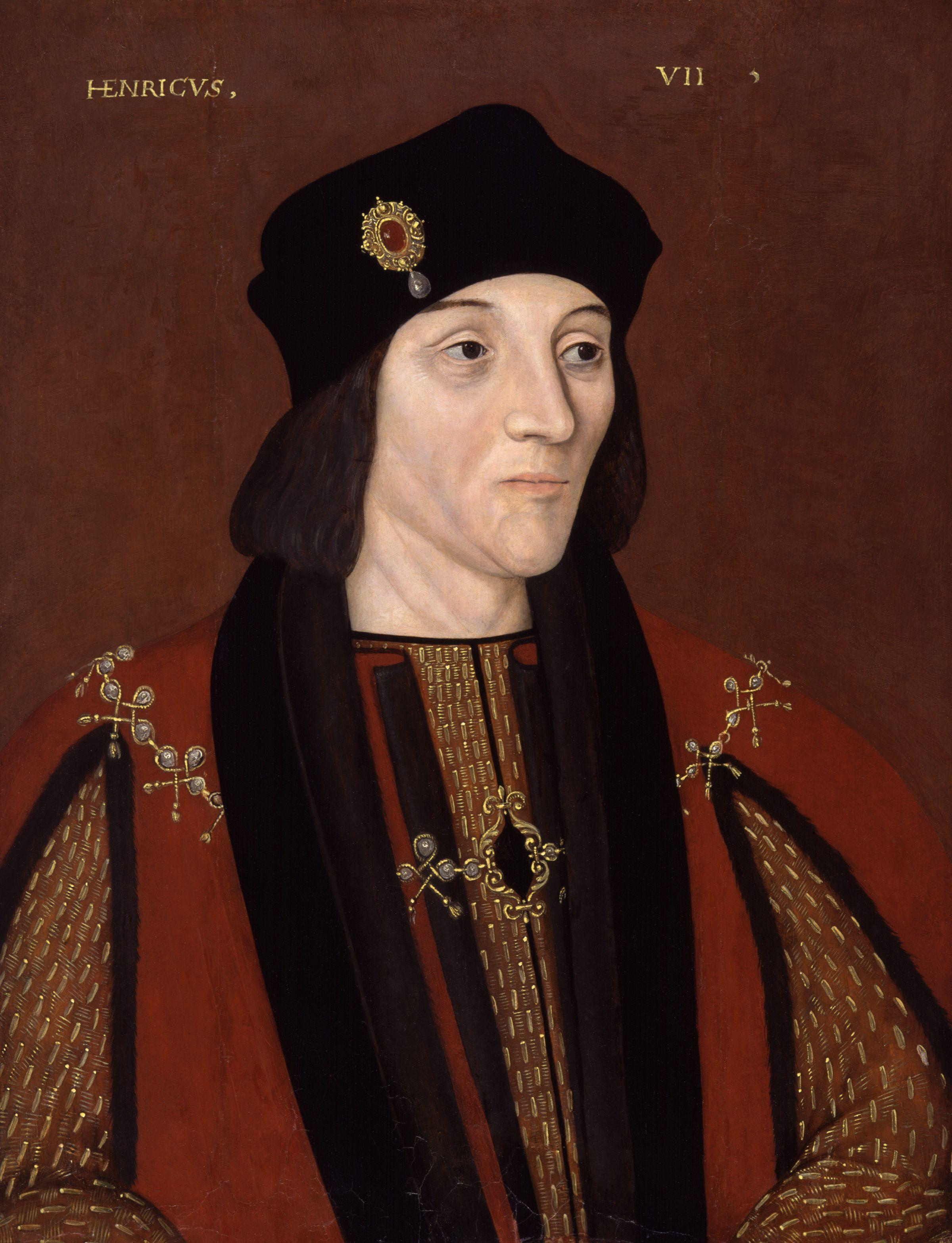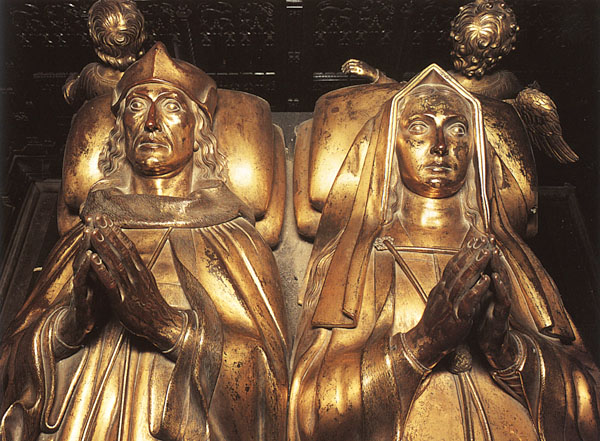Henry VII became King of England after defeating Richard III, the king who was discovered in a carpark in Leicester in 2012, at the Battle of Bosworth Field in 1485. It brought to an end the Wars of the Roses, the civil war between the houses of Lancaster, the red rose, and York, the white rose (any high fantasy fans out there may be interested to know that George R. R. Martin was inspired by a lot of the events of the Wars of the Roses for his A Song of Ice and Fire series). Henry Tudor, the Lancastrian claimant, was victorious.
 |
| The Tudor Rose |
To further solidify his victory and heal the wounds England and Wales suffered during the turbulent times of war, Henry chose for his bride Richard III's niece, Elizabeth of York, thus uniting the two houses and creating the famous symbol of the Tudor rose; the white rose within the red.
What began as a political union slowly but surely turned into a genuinely affectionate and loving marriage. It is rumoured that Henry never took any mistresses - a rather impressive sign of his devotion! - and in a reign that was brimming with suspicion and uneasiness due to Henry's increasing paranoia over the security of his kingship, it was Elizabeth who was a constant comfort to him, and whom he trusted implicitly.
 As Queens go Elizabeth certainly did her wifely duty. The two married on the 18th January, 1486, and on the 20th September of that year their first child, a son and heir, was born, whom they named Arthur. Is it just me, or do those dates seem to suggest the two of them didn't wait until they married to consummate their relationship?
As Queens go Elizabeth certainly did her wifely duty. The two married on the 18th January, 1486, and on the 20th September of that year their first child, a son and heir, was born, whom they named Arthur. Is it just me, or do those dates seem to suggest the two of them didn't wait until they married to consummate their relationship?In 1491 Elizabeth produced a second son, Henry (who would later become the notorious Henry VIII), meaning she did what the great queens of history did by producing 'an heir and a spare'; in 1499 she gave birth to a third son, Edmund, but he sadly passed away when he was 15 months old. As well as those three sons, she also produced Margaret, Elizabeth (who sadly died when she was 3 years old), and Mary. Both Margaret and Mary were married off, Margaret to James IV of Scotland and Mary to Louis XII of France, building political relations that benefitted Henry's often uneasy reign.
But tragedy struck the pair in 1502 when, on the 2nd April, Arthur passed away. He was 15.
Naturally Henry and Elizabeth were heartbroken at the loss of their firstborn son, for whom they had surely hoped a long and successful reign as King Arthur, securing the lineage of the Tudors, but for Henry there was another fear. Yes, they had another son, Henry, but while Arthur had been raised as the future king Henry had been prepared to enter the church, and now that Arthur had died who was to say the same fate wouldn't befall their second son?
As always it was Elizabeth who brought Henry comfort when she reassured him they could still have more children. At 36 years old, very old to be having children in the 16th century, and at great personal risk to her own health, she quickly fell pregnant with their seventh child. Tragedy, however, had not finished with Henry.
On the 2nd February a daughter, Katherine, was born, only to die eight says later. The day after Elizabeth followed. She died of a post partum infection on the 11th February, 1503; her 37th birthday.
Henry and their children deeply mourned Elizabeth's death. Henry's contemporaries noted that he went into seclusion for six weeks, and quickly began to show signs of illness himself. It was a rare occassion in which Henry showed any sign of weakness, and yet in the weeks following his wife's death he allowed only his mother, Margaret Beaufort, to attend him.
 |
| A manuscript depicting the aftermath of Elizabeth's death. To the left can be seen Margaret and Mary, wearing black mourning veils, and in the top left corner is a depiction of 11 year old Henry VIII, weeping into his mother's empty bed. |
After Elizabeth's death Henry's paranoia and miserliness grew markedly worse, and it is believed that when he died a widower in 1509 it was partly from a broken heart, for he never stopped mourning the loss of Elizabeth. Each year on the anniversary of her death he decreed a requiem mass be sung, the bells be tolled and 100 candles be lit in her honour. He was buried beside her, and the two still lie together now.



